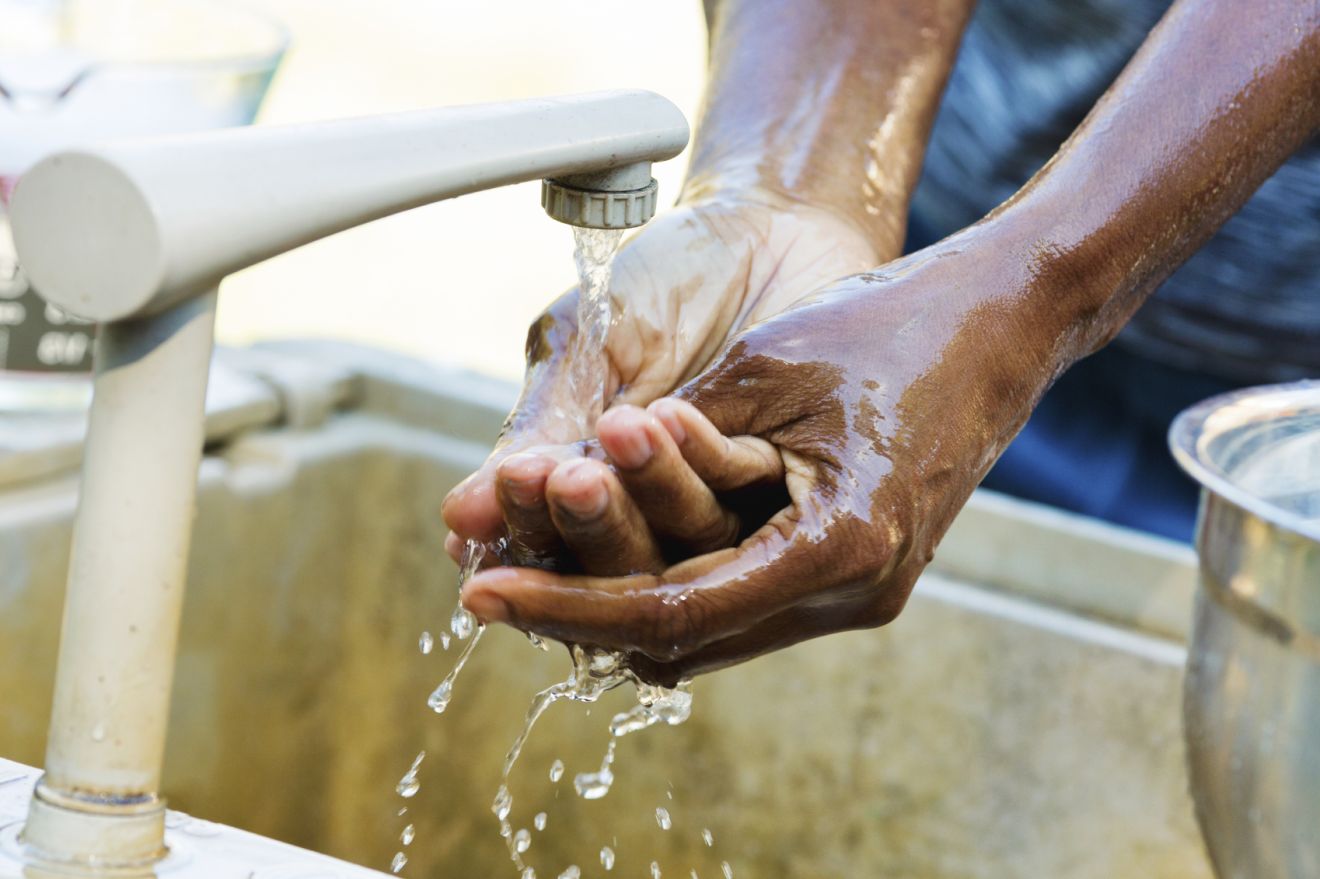
Diarrhoea is a major cause of child mortality in rural Vietnam, caused by a lack of running water and poor handwashing habits. A handwashing station called the HappyTap could solve the problem
While working to improve sanitation and hygiene standards in Southeast Asia, George Revell noticed that diarrhoea was a major cause of child mortality in Vietnam, especially in the rural areas. Vietnamese children suffered from chronic diarrhea, and the reason was simple: children and their mothers were not washing their hands with soap before meals or after defecating.
Revell recalls:
“People, when asked, were aware of the importance of handwashing and of the ‘critical times’ they needed to wash their hands, such as after using the bathroom, before feeding their baby and before cooking. However, they didn’t do it. We thought it might be partly because many did not have a convenient place for handwashing in the home.”
That assessment was certainly true. Euromonitor International research showed that only 66 percent of rural households in Vietnam – amounting to 20 million people – have access to basic sanitation, and that five million people still practiced open defecation. Despite various programmes to encourage the practice of handwashing in rural Vietnam, the prevalence of chronic diarrhoea among children remained high.
The solution to that was to make handwashing a convenient and cost-efficient option in the home. Revell established WaterSHED (Water, Sanitation and Hygiene Enterprise Development) in August 2011 in Cambodia, and decided to create a portable handwashing station called the HappyTap. Vietnam was chosen because there was a plastics manufacturing base which could help produce the HappyTap, thereby saving transportation costs.
No fun with no funds
Revell identified three sources for funding the project: USAID, a U.S. government agency that aims to further American interests in developing countries, and help improve living conditions in these countries; global consumer goods giant Unilver; and the World Bank.
All three had already allocated funds for projects such as Revell’s but a combination of administrative glitches and poor judgement closed off these funding avenues. Revell, however, discovered USAID’s Development Innovation Ventures (DIV) programme, which is described on its website as a “tiered-funding model, inspired by the venture capital experience, invests comparatively small amounts in relatively unproven concepts, and continues to support only those that prove they work”.
In April 2012, WaterSHED was granted DIV Stage One funds worth US$100,000 to develop a prototype and provide proof of concept. The prototype, as described in the SMU Case Writing Initiative case “HappyTap: Encouraging handwashing in rural Vietnam”, was:
“...a device [that] was practical on many fronts. It came with its own water tank, with no need for running water. It had a spout that sprayed out with many nozzles for efficient distribution of water over a wide surface, and the friction of rubbing and use of soap under the nozzle spray was good enough to sufficiently clean hands. A tray at the base of the HappyTap caught the used water with no spillage.”
By September 2013, after conducting test-selling events in rural areas, Revell proved that HappyTap could be a commercial success and secured more funding from DIV, this time a Stage Two fund for US$650,000 to manufacture the product.
To market, to market
The World Bank’s Water and Sanitation Program (WSP) found in 2009 after talking to rural Vietnamese that ‘poor people want nice things too’. In that sense, they did not want something that looked cheap or of poor quality in their houses.
WaterSHED proceeded to raise the price of the HappyTap to VND 230,000 (US$11) from VND 150,000 (US$7.20). This followed test-selling events where people revealed that they were willing to pay up to VND 250,000 (US$12) for HappyTap. Good quality stickers and packaging were used to project a premium image. As of February 2014, the manufacturing cost per HappyTap unit was about US$7.50. For the project to break even, 200,000 units had to be sold by December 2016.
However, Revell needed to sell 10,000 units by February 2014 to get the next tranche of funds worth US$65,000 under Stage Two funding; only a few hundred had been sold up until then. Until he can get past the current hurdle, the HappyTap will not see Stage Three funding, which only one company has ever managed to secure.
How should Revell proceed?
This is a condensed version of the SMU Case Writing Initiative case, “HappyTap: Encouraging handwashing in rural Vietnam”. To see the full case, please click on the following link: http://ink.library.smu.edu.sg/cases_coll_all/118/
Follow us on Twitter (@sgsmuperspectiv) or like us on Facebook (https://www.facebook.com/PerspectivesAtSMU)